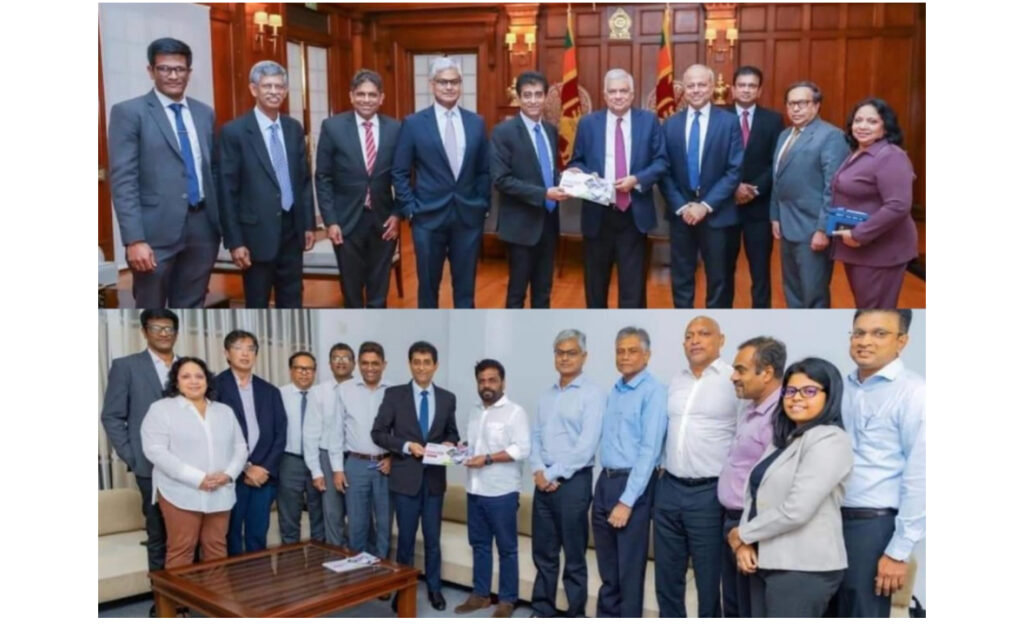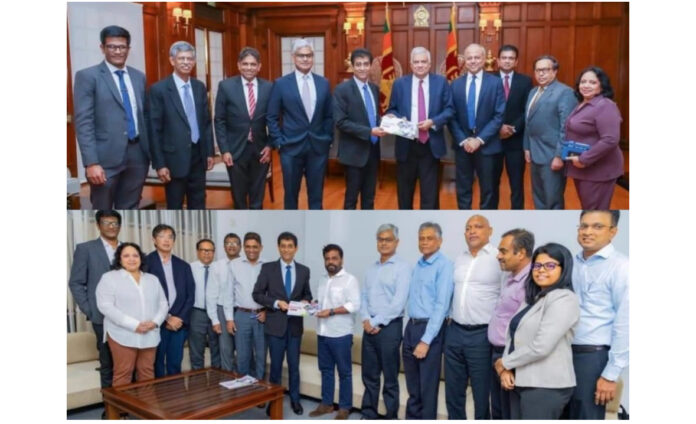By Adolf

Some of the Chamber Executives hold key jobs in the AKD Administration
The Ceylon Chamber of Commerce (CCC) has traditionally played a key role in shaping Sri Lanka’s economic policies. However, in recent years, it has increasingly been perceived as a politically engaged entity according to Chamber analysts , leveraging its influence to steer policy decisions in favor of its key stakeholders. Under the leadership of figures like Duminda Hulangamuwa, the CCC has adopted a more strategic approach in engaging with the presidency, actively maneuvering economic and tax policies to align with its preferred economic agenda. For President Anura Kumara Dissanayake (AKD), who lacks prior business or economic and oversees experience, the CCCs outreach presented an opportunity to gain economic insights. However, sources suggest that he may have placed undue trust in the Chamber’s narrative. Also that there are several other chambers in the country. Who do their and stay out of politics. This led to the appointment of the CCC Chairman as his Economic Advisordespite concerns within his party about the Chamber’s alignment with elite business interests.
CCC Chairman
Notably, the CCC Chairman is set to retire from his main Jobposition and the Chamber presidency in the coming months. Finance Ministry insiders indicate that he is eyeing the position of Finance Ministry Secretary, currently held by Mahinda Siriwardana. However, resistance is mounting within the JVP hierarchy, given Hulangamuwa’s past associations with Dr P.B. Jayasundara and later Ranil Wickremesinghe.
Neutrality
Historically, the CCC has positioned itself as a neutral business advocacy platform, offering policy recommendations that support economic stability, trade facilitation, and investment growth. However, its current trajectory suggests a deeper entanglement in political decision-making particularly in shaping the President’s economic strategy. While its influence has resulted in pro-business reforms, concerns are emerging about governance, economic equity, and policy neutrality. This shift has also affected the Chamber’s ability to navigate between the public and private sectors as a key policy influencer. With the CCC increasingly seen as having vested interests in governance structures, other chambers may now have an opportunity to step up as more credible policy advocates.
Future
Amid Sri Lanka’s fragile economic landscape, President AKD faces the critical challenge of balancing business interests with broader economic stability. The CCCs growing political engagement places pressure on him to align policies with the Chamber’s priorities particularly in areas such as corporate taxation, financial regulations, and trade liberalization. While pro-business policies are essential for economic recovery, the CCC’s increasing influence, including its acceptance of unpaid government advisory roles and executive , raises concerns about the potential for policy imbalances. If the AKD government leans too heavily toward private sector interests without addressing social equity and economic inclusivity, the country risks widening wealth disparities and regulatory imbalances. Over time, the President may face backlash from within his own party, while private sector advisors, as is common in Sri Lanka, will seamlessly transition to advising the next political administration.
